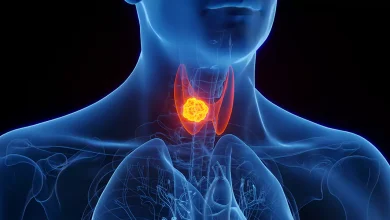All about Cirrhosis

What is Cirrhosis?
Cirrhosis is a condition that affects one of the most essential and delicate organs of the human body, the liver. Cirrhosis is not exactly a particular disease, but the late-stage result of liver-related diseases you are already suffering from and its complications. Cirrhosis leads to scar tissue slowly replacing the healthy liver cells that affect the regular functions of the liver adversely as the scar tissue affects the blood flow through the liver which may result in liver dysfunction. Cirrhosis mostly occurs because of alcohol consumption for a long period of time, hepatitis, toxins from medicines and sometimes it’s hereditary also.
What are the Types of Cirrhosis?
Cirrhosis can be classified into three different types:
- Micronodular Cirrhosis: Micronodular cirrhosis is a vivid term subjectively defined as a type of cirrhosis where the nodules are less than 5 mm in diameter. It is caused mostly because of alcohol consumption, hemochromatosis, hepatic venous outflow obstruction, chronic biliary obstruction, etc.
- Macronodular Cirrhosis: Macronodular Cirrhosis also known as “postnecrotic cirrhosis,” “posthepatitic cirrhosis,” or “multilobular cirrhosis” and in this type of cirrhosis, the majority of the nodules are larger than 3 mm. It is caused mostly because of chronic hepatitis.
- Mixed Cirrhosis: Mixed Cirrhosis has symptoms of both micronodular and macronodular cirrhosis and it can occur because of alcohol consumption or hepatitis, which are also the main causes of micronodular cirrhosis and macronodular Cirrhosis respectively.
What are the Symptoms of Cirrhosis?
The symptoms of cirrhosis depend on the stage of the disease. In the earliest stage of cirrhosis, there may be no symptoms but with time, the symptoms begin to appear when the disease progresses into the next stages. Even if the symptoms appear in the beginning, they are very common which may be mistaken as some other disease also. A few symptoms of the earlier stages of cirrhosis are:

- Loss of appetite
- Getting tired easily
- Feeling weak most of the time
- Losing weight without any effort
- Fever most often
- Nausea
As the condition worsens, the other symptoms of cirrhosis start to appear such as:
- Legs start to swell and the abdomen because of the buildup of fluid
- Skin or the white part of the eyes turning yellow which are the signs of jaundice
- Legs, feet, and ankles start to swell
- Buildup of fluids in the belly
- Colour of urine becomes brownish or orange
- Mental issues such as finding difficulty thinking, memory loss, confusion, change in behavior etc
- Blood in stool
- Palms of the hand turning red
- Internal bleeding
- Low sex drive
- Enlarged spleen
What are the Causes of Cirrhosis?
Various types of liver-related diseases gradually turn into cirrhosis over a period of time when the liver is injured. The injured cell leads to liver cells dying and the scar tissue replaces the damaged liver cells and liver is not able to do its functions properly and slowly the conditions turn into cirrhosis.
The most common causes of cirrhosis are:
- Consumption of alcohol for a long period
- Infections of the liver like hepatitis B and hepatitis C
- Obesity and diabetes
- Nonalcoholic fatty liver disease because of fat accumulation in the liver
- Hemochromatosis (Buildup of excess iron in the body)
- Accumulation of copper in the liver
- Toxins in the body because of medicines
- Poorly formed bile ducts (biliary atresia)
- Genetic causes
- Diseases related to glycogen storage where the liver is not able to store or breakdown glycogen, a type of sugar
- Chronic heart failure
- Liver-related conditions because of the body’s immune system
- Infections like syphilis or brucellosis
- Deficiency of Alpha-1 antitrypsin
- Autoimmune diseases where the liver cells are attacked by the body
- Certain ailments where the body is not able to process sugar
What are the Risk Factors Associated with Cirrhosis?
Here are the risk factors associated with cirrhosis: 
- Alcohol consumption for a long period
- Viral hepatitis is also one of the most common risk factors for cirrhosis
- If you have diabetes, the risk of cirrhosis increases
- Injecting drugs with shared needles
- If you are already suffering from hepatitis, the risk of cirrhosis increases
- History of liver-related diseases
- Unprotected sex
- Inflammation because of obesity and metabolic disorder
How is Cirrhosis Diagnosed?
If you notice symptoms of cirrhosis, then visit a doctor who will go through a few procedures to diagnose if you have cirrhosis or some other condition. Majorly, they will ask about your medical history, over-the-counter and prescription drug use, whether you consume alcohol or not, along with any supplements or herbal products you may use. If you have a long history of alcohol use, injectable drug use, or have had hepatitis B or C, he will ask you to go through a few tests to check if you are suffering from cirrhosis or not.
- Physical Test: The doctor will examine you and search for signs and symptoms of cirrhosis such as checking the colour of your skin and white part of the eyes are turning yellow or not, whether blood vessels looks like a spider, if your palms are becoming red, swelling, pain or tenderness in your abdomen, etc. Also, he will ask a few questions regarding your medical history, if you consume alcohol or any kind of drugs, etc. All the procedures mentioned here are quite helpful to diagnose cirrhosis.
- Blood Test: If you have symptoms of cirrhosis and the doctor is also suspecting liver damage, he will ask you to go through a blood test to confirm it. After the blood test, some signs will confirm the condition such as
-If your blood test shows a low level of albumin and factors of blood clotting, it means your liver is not able to make these proteins anymore, a clear sign of liver damage and blood clotting factors (lower levels mean your liver has lost its ability to make these proteins).
-Increase in the level of liver enzymes which is a sign of inflammation that may cause liver damage
-If you have autoantibodies in your blood, there are chances that you have hepatitis or primary biliary cirrhosis. Hepatitis is one of the main causes of cirrhosis.
-Increase in bilirubin level shows that the liver is not functioning the way it should as it’s not able to remove bilirubin from the blood
-High white blood cell count indicates some type of infection in the liver
-If the level of creatinine is high then it means late-stage cirrhosis
-Lower level of sodium indicates cirrhosis
-High level of alpha-fetoprotein indicates the presence of liver cancer.
- Imaging Test: Imaging tests mostly involve computerized tomography (CT) scans, abdominal ultrasound, and magnetic resonance imaging (MRI) that help in showing the size, shape, and texture of the liver. The doctor will check the liver minutely and check the volume of scarring, the quantity of fat in your liver, and the level of fluid in your abdomen. A special ultrasound, known as transient elastography, checks the fat content and the stiffness in your liver. Two different types of endoscopies may be carried out, an endoscopic retrograde cholangiopancreatography to identify any issues in the bile duct, and an upper endoscopy to spot enlarged veins or bleeding in your stomach, esophagus, or intestines.
- Biopsy: A tiny sample of liver tissue (biopsy) is taken from your liver and it’s checked under the microscope. A liver biopsy can confirm if you are suffering from cirrhosis or not along with other causes and the degree of liver damage or expansion or diagnosis of liver cancer.
What Are The Treatment Options For Cirrhosis?
The treatment of cirrhosis depends on the stage of cirrhosis and the volume of liver damage. You shall know that there is no cure for cirrhosis but its progress can be delayed or stopped by treating the causes of cirrhosis. Since cirrhosis occurs because of liver damage, the only way to prevent it from doing more damage is to treat the causes of cirrhosis.
Some treatments available for the causes of cirrhosis are as follows:
- Cirrhosis Because of Alcohol Consumption: If you are suffering from cirrhosis because of consuming alcohol for a long time, then the first thing is to stop consuming alcohol. There are many alcohol addiction treatment centers available that can help you to stop taking alcohol and get out of the alcohol addiction.
- Non-Alcohol Related Fatty Liver Disease: Treating this cause includes losing weight, eating healthy food along with living a healthy lifestyle, doing regular physical exercise, and following all the instructions provided by your doctor to control diabetes.
- Hepatitis: There are many approved antiviral medicines available to treat hepatitis, whether it’s hepatitis type B or C.
- Inherited Liver Diseases: Treating inherited liver diseases is complicated as compared to treating the other causes because of the reason that you have no role in the occurrence of cirrhosis but you got it because it’s inherited over which you don’t have any control. Still, proper medication helps in controlling the severity of these diseases.
- Check Other Reasons for Cirrhosis: Injecting drugs with shared injections and unprotected sex may lead to hepatitis B or C. Stop doing them immediately. Stop all the causes of cirrhosis that are in your control.
- Medications That May Be the Reason for Cirrhosis: Many medicines you take to treat other diseases may also be the reason for cirrhosis. Let your doctor check your medical history and the medicines you are taking. He will review all of your medications to check if any are causing problems for your liver and if so, he will ask you to stop it altogether, lower the dose if the medicine is a must, or replace it with different medicine if possible.
What are the Complications of Cirrhosis?
Many times, cirrhosis may lead to various other complications also. Here are a few complications of cirrhosis:
- Portal Hypertension: One of the main complications of cirrhosis is portal hypertension which causes high blood pressure in the veins that supply blood to the liver. It is the result of chronic end-stage liver disease which can be cured through proper treatment and medication.
- Legs and Abdomen Swells: Another complication of cirrhosis is swelling of the legs and abdomen which is caused because of amplified pressure in the portal vein which lets the fluid accumulate in the areas near the legs and abdomen.
- Splenomegaly (Enlargement of the Spleen): Portal hypertension can also lead to swelling of the spleen, a condition known as splenomegaly. Splenomegaly is a serious condition with possible life-threatening concerns, like substantial blood loss because of splenic rupture. It can be cured through proper medication along with taking some precautions.
- Liver or Kidney Failure: Cirrhosis may lead to some serious problems like liver or kidney failure which can be life-threatening. Proper care is needed to stop the upsurge of these two conditions.
- Infections: Cirrhosis may lead to various types of infection-related conndtions as the body is no more able to fight infections.
- Liver Cancer: Liver cancer is one of the most dangerous complications of cirrhosis. A large number of people with liver cancer have earlier suffered from cirrhosis. Treatment of the liver mostly depends on its severity and stage. If it’s diagnosed in earlier stages then it can be treated by removing the cancer part of the liver or replacing the whole liver through liver transplantation.
- Jaundice: Jaundice is one of the most common complications of cirrhosis which can be treated with medication.
Living with Cirrhosis
If you have cirrhosis, then you must be aware that the liver damage is already done and can’t be cured but with a disciplined lifestyle, you can stop it from growing further before it becomes life-threatening. If you used to drink alcohol or have a habit of substance abuse, you have to stop it immediately. The way you live with cirrhosis also depends on the stage of cirrhosis and if it’s in the earlier stage, you can lead a normal life with some precautions and if it’s in the late stage then steps should be taken to reduce the pain or symptoms you are facing because of it. Regular exercise, and maintaining your weight help in living a normal life with cirrhosis.
Whom to Consult?
First of all, if you are worried about suffering from cirrhosis then you can reduce the risks by quitting alcohol or any kind of substance abuse, eating a healthy diet and doing proper exercise, and keeping your weight in check, If symptoms of cirrhosis arise, immediately seek medical help and consult a doctor who is specialized in treating cirrhosis.




